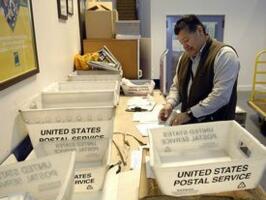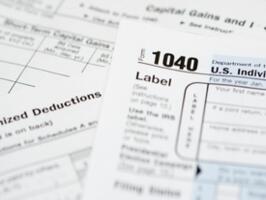Election 2012: Generic Republican 47%, Obama 41%
A generic Republican still holds a six-point advantage over President Obama in a hypothetical 2012 match-up for the week ending Sunday, October 9.

A generic Republican still holds a six-point advantage over President Obama in a hypothetical 2012 match-up for the week ending Sunday, October 9.

A plurality of voters continues to believe the United States is winning the War on Terror, and confidence in the safety of the nation has reached a new high.

Former Massachusetts Governor Mitt Romney remains neck-and-neck with President Obama in the latest hypothetical Election 2012 matchup.

An independent panel advising the Obama administration released its recommendations last week on how the government should determine what level of coverage most health insurance policies should be required to have. But voters strongly oppose a government-mandated level of health insurance coverage.

"Home-Health Firms Blasted." The headline refers to a Senate Finance Committee finding that major providers of home-based services to Medicare patients were bilking the government program. Big time.

Most Americans hold a favorable opinion of Steve Jobs, Apple Computer’s co-founder and CEO who died last week, and nearly half think his company will remain a technological leader despite his passing.

An exclusive interview with GOP hopeful, Herman Cain.

Republicans now hold a five-point lead over Democrats on the Generic Congressional Ballot for the week ending Sunday, October 9.

Most Americans nationwide continue to believe that government workers get more pay and better job security but don’t work as hard as their counterparts in the private sector.

Georgia businessman Herman Cain has pulled within three points of President Obama in the latest Rasmussen Reports national telephone survey of Likely U.S. Voters.

Voters aren’t well versed on surging Republican presidential hopeful Herman Cain’s “9-9-9” tax reform plan, but most agree that if it becomes law, Congress won’t wait long to raise the tax rates higher.

Christopher Columbus is still generally regarded as the explorer who “discovered” America, and most Americans think the United States should remember him with a holiday. But they don’t rate Columbus Day, celebrated officially today, very high on the list of U.S. holidays.

Voters still tend to see the congressional agendas of both major political parties as out of the mainstream and view President Obama and the average member of Congress as out of step with them ideologically.

A majority (51%) of voters still blames the nation’s current economic problems on the recession that began under President George W. Bush rather than the economic policies of President Obama.

As the nation braces itself for another race for the White House, voters say enough is enough.

Americans need something to believe in because right now their faith in the nation’s future is scraping rock bottom.

Voters of all races nationwide continue to view relations between whites, blacks and Hispanics as a work in progress.

Voters remain overwhelmingly convinced that most politicians won’t keep their campaign promises, but they’re a little less convinced that their elected officials deliberately lie.

Very few Americans believe Amanda Knox is guilty of murdering her flatmate in Italy four years ago, and a plurality feels the media played an important part in overturning her conviction.

Working-age Americans remain skeptical about receiving their Social Security benefits even though they mistakenly believe money in the Social Security Trust Fund can be used only to pay promised benefits.